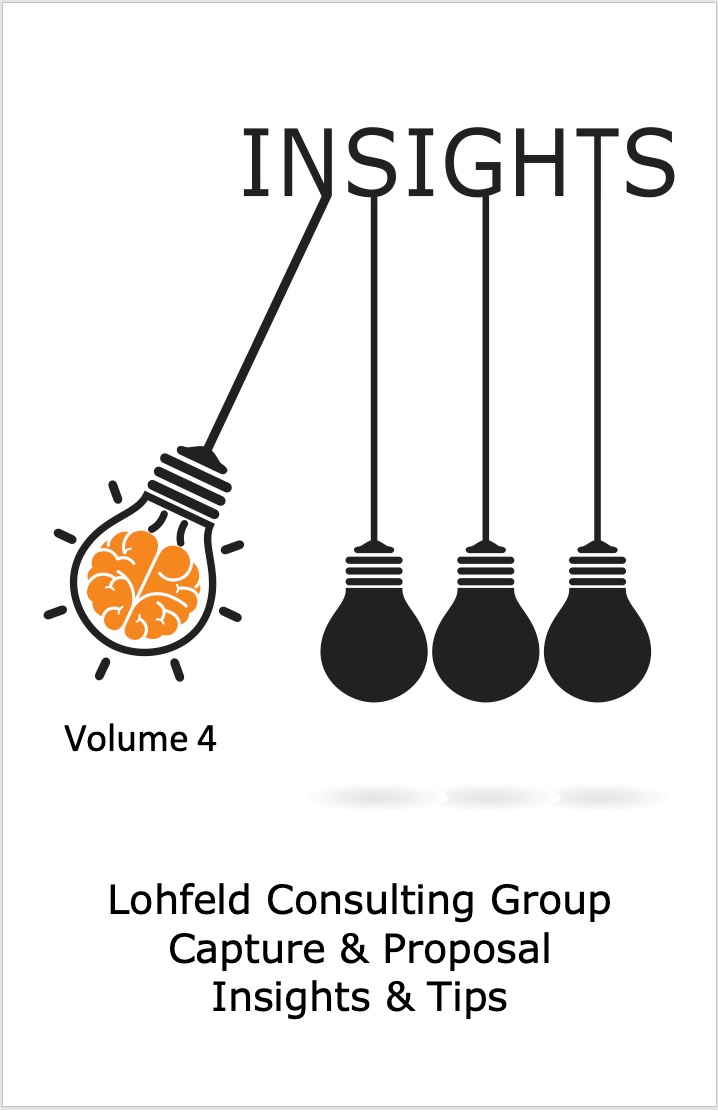Harnessing Emerging Technologies for Government RFP Success

The ability to swiftly adapt and innovate is no longer a luxury but a necessity—especially for companies vying for government contracts. Government Requests for Proposals (RFPs), particularly within the realms of Governmentwide Acquisition Contracts (GWACs) and Indefinite Delivery, Indefinite Quantity (IDIQ) contracts, are increasingly emphasizing the need for emerging technology experience. For example, the General Services Administration’s (GSA) upcoming Alliant 3 bid requests that offerors provide up to 33 examples of relevant emerging technologies experience, per Section L.5.2.4.
The Crucial Role of Emerging Technologies
The requirement for emerging technology experience underscores the government’s recognition that technology is a linchpin in response and recovery efforts in times of crisis, be it natural disasters, cybersecurity breaches, or public health emergencies. Therefore, integrating emerging technologies into a company’s portfolio is not just about showcasing capability; it’s about demonstrating foresight, agility, and a commitment to supporting public sector needs in the most critical moments.
Demonstrating Emerging Technology Experience
When responding to government RFPs asking for emergency technology experience, it’s essential to highlight your company’s ability to mobilize quickly, innovate under pressure, and deliver solutions in high-stakes environments. In many cases, the government will also ask you to tie your description to a specific requirement for the technology capability in the statement of work (SOW) or performance work statement (PWS). To substantiate your experience, provide case studies of past emerging technology projects backed by metrics, proof points, and customer kudos. In addition, showcase your team’s expertise and relevant certifications and elaborate on your technological and infrastructural readiness to address emerging technology requirements.
Emerging IT Technologies of Interest to the Government
Several emerging technologies are relevant for government applications, including:
- 5G and Beyond: Serves as the backbone for next-generation connectivity and data exchange.
- Artificial Intelligence (AI) and Machine Learning (ML): Supports predictive analytics, automated decision-making, and workload efficiency.
- Augmented Reality (AR) and Virtual Reality (VR): Supports advanced training and simulation for emergency responders.
- Big Data: Provides the ability to manage, mine, analyze, visualize, and report on voluminous data.
- Blockchain Technology: Helps verify data integrity and security in public transactions and records. It uses cryptography technology to sign messages and encrypt data with the help of a private-public key mechanism.
- Cloud Computing: Describes anything that involves delivering hosted services over the Internet.
- Cybersecurity Innovations: Protects against evolving digital threats.
- Digital Twins: Enables sophisticated urban planning and disaster management scenario modeling.
- Edge Computing: Facilitates faster, localized data processing in emergency scenarios.
- Internet of Things (IoT): Enhances real-time monitoring and management of public infrastructure.
- Quantum Computing: Offers breakthroughs in cryptography and complex problem-solving.
- Zero Trust Networks: Keeps attackers out of networks and requires continuous verification.
Incorporating these technologies into your portfolio involves documenting past projects and actively engaging in ongoing learning, research and development, and collaborations that push the envelope of what’s possible. Participating in government-led simulations and continuously upgrading your team’s skills are key strategies to demonstrate your capabilities.
Conclusion
Integrating emerging technologies into government services enhances operational efficiency, builds resilient communities, and safeguards the nation against unforeseen challenges. This represents both a responsibility and an opportunity for companies in the government technology sector. By demonstrating emerging technology experience and a forward-looking approach to innovation, companies can win government contracts and play a crucial role in shaping a safer, more connected world.
If you’re ready for a change, now is the time to assess your portfolio, invest in the technologies of tomorrow, and prepare your team to create high-scoring proposal responses highlighting your emerging technologies capabilities.
Related Content:
- Get Ready for the AI Revolution
- Checklist for moving your proposal score from Green to Blue
- Cutting Through the Haze: Demystifying AI’s Role in Proposals
By Brenda Crist, Vice President at Lohfeld Consulting Group, MPA, CPP APMP Fellow
Lohfeld Consulting Group has proven results specializing in helping companies create winning captures and proposals. As the premier capture and proposal services consulting firm focused exclusively on government markets, we provide expert assistance to government contractors in Capture Planning and Strategy, Proposal Management and Writing, Capture and Proposal Process and Infrastructure, and Training. In the last 3 years, we’ve supported over 550 proposals winning more than $170B for our clients—including the Top 10 government contractors. Lohfeld Consulting Group is your “go-to” capture and proposal source! Start winning by contacting us at www.lohfeldconsulting.com and join us on LinkedIn, Facebook, and YouTube(TM) .
Paperback or Kindle
10 steps to creating high-scoring proposals
by Bob Lohfeld
contributors Edited by Beth Wingate
Subscribe to our free ebrief
Teaming friends, frenemies, and enemies—12 tips to mitigate harmful effects
Did you know that contracting officers spend up to 20% of their time mitigating disputes between teaming partners? In an informal poll we conducted on LinkedIn last month, 40% of respondents classified their teaming partners as “frenemies” on their last bid.
Explore Further
- Advice (446)
- AI (5)
- APMP (17)
- Business Development (198)
- Capture Management (197)
- Favorite Books (5)
- Go-to-Market (27)
- Graphics (6)
- Lohfeld Books (3)
- Past Performance (58)
- Post-submission Phase (15)
- Pre-RFP Preparation (211)
- Proposal Management (270)
- Proposal Production (60)
- Proposal Reviews (27)
- Proposal Writing (77)
- Pursuit Phase (89)
- Research Report (2)
- Resources (60)
- Tools & Tips (259)
- Training (10)
- Uncategorized (220)

Sign Up for INSIGHTS and Download your FREE book
We'd love to help you with your proposals. Enjoy our complimentary Lohfeld Consulting Group Capture & Proposal Insights & Tips book with your FREE subscription to our Insights Newsletter.
GET YOUR FREE BOOK




